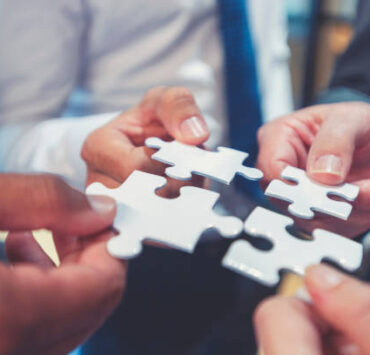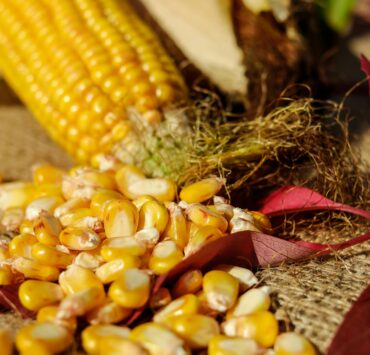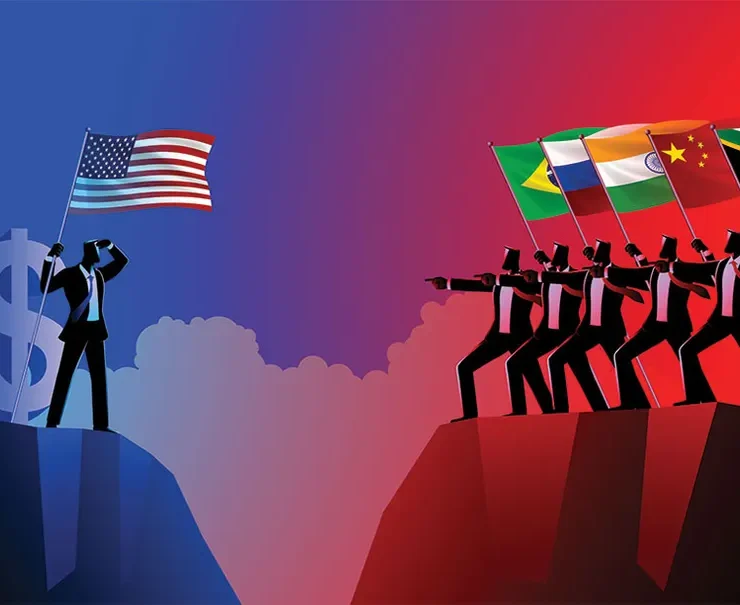Post-Traumatic Growth

John Wills Njoroge is a psychotherapist and social diagnostician who…
Reconstruction of our lives
The year 2024 has unfolded as a complex tapestry of joy, pain, and regret, each thread interwoven in a uniquely personal narrative. Some of the events that have shaped this year have been entirely beyond our grasp, while others are reflections of the choices and decisions we’ve made along the way. The ache of regret often arises when we find ourselves struggling to forgive our past actions or to move forward from experiences that weigh heavily on our hearts. These burdens can lead us to construct our own mental prisons, confining us within the walls of our own harsh judgments and limiting beliefs. In these self-imposed jails, we become both the prisoners and the jailers, trapped by our perspectives and unable to see the path to growth and healing.
As I take a moment to reflect on the past year, I find myself contemplating the diverse individuals I’ve encountered and the meaningful experiences we’ve shared, particularly within the intimate circles of my family. It brings to mind a term that my thesis supervisor once introduced to me: Post-Traumatic Growth (PTG). This concept encapsulates the extraordinary positive psychological transformation that can arise following the ordeal of a challenging or distressing life event.
Traumatic moments can leave deep emotional scars, altering not only our sense of self but also reshaping our perceptions of the world around us. Yet, hidden within the rubble of such devastating experiences, there often lies an unexpected silver lining. These life-altering events can serve as powerful catalysts for change, awakening within us a renewed sense of vitality and purpose. They challenge us to reconsider what truly matters and often inspire growth in ways we could never have anticipated. The journey through adversity can lead us not only to recover but also to thrive, emerging with a richer understanding of ourselves and a deeper appreciation for life’s complexities.
When you feel fractured and vulnerable, it’s essential to acknowledge the incredible strength that resides within you. There is something truly powerful about the way you persevere, holding yourself together as you navigate the turbulent waters of healing. Even when you feel like you might shatter into a thousand pieces, your determination to keep moving forward speaks volumes about your resilience.
Remember that this journey of healing is uniquely yours; it doesn’t need to be flawless or graceful. It simply requires you to take one step at a time, pushing through the discomfort and uncertainty. Embrace the process, and trust that with each step you take, you are slowly but surely reclaiming your sense of self and healing in your own way.
Since our childhood, remember the time you thought you never could survive? You did survive and that is why you are reading this, and you can do it again. During such difficult moments, you thought life that life had conspired against you. Some of the experiences we go through as humanity can shatter our hopes and bruise our understanding of life. These experiences include;
Physical abuse and violence often occur in families struggling with substance abuse issues, where the harmful effects can escalate into intentional acts of bodily injury. This type of abuse can manifest in various violent behaviors, such as slapping or pinching, choking or kicking, and shoving. There are also more insidious forms, like the inappropriate use of drugs to manipulate or control someone, or the use of physical restraints that limit a person’s freedom. Recognizing the signs of physical abuse is crucial, as they can vary widely and may include unexplained injuries, frequent “accidents,” or fearful behaviors in the presence of certain individuals. It is essential to address these issues to ensure the safety of those affected.
Sexual abuse is defined as any form of sexual contact that occurs without consent, encompassing a range of unwanted interactions. This can include but is not limited to, actions such as unwanted touching, rape, sodomy, coercing someone into nudity, and taking sexually explicit photographs without the individual’s consent. The impact of such abuse can be profound and damaging, affecting the victim’s physical and emotional well-being.
Mental mistreatment, often referred to as emotional abuse, involves the intentional infliction of psychological pain and distress on an individual. This type of abuse can manifest in various harmful behaviors, such as intimidation and coercion, where the abuser seeks to exert control over the victim. It may also include ridicule and harassment, undermining the victim’s self-esteem and sense of identity. Additionally, treating an adult like a child can strip them of their autonomy and respect. Isolation is another tactic employed by abusers, as it cuts off the victim from family, friends, and normal activities, further entrenching their control. Furthermore, using silence to manipulate behavior or resorting to yelling and swearing can create an atmosphere of fear and anxiety, leading to significant emotional distress for the victim. This can lead to separations in families that can bruise our wellness.

A sudden separation from a loved one is lethal to the mind soul and body. This is a distressing and unexpected parting from someone who plays a significant role in your life, creating profound emotional upheaval. This can occur in various contexts—a romantic relationship that ends abruptly, a family member moving to a new city, or even the tragic loss of a loved one through unforeseen circumstances such as an accident or illness.
When this separation happens, it often triggers a cascade of intense emotions that can be difficult to navigate. You may experience deep sadness as you reflect on the joyful moments you shared and the future you had envisioned together. The grief can be overwhelming, as you mourn not just the person you’ve lost but also the closeness and intimacy that characterized your relationship. Alongside this, anxiety may arise—worries about your own well-being, the disruption of your daily life, and the uncertainty of what comes next can feel paralyzing.
Moreover, the sensation of emptiness that follows can be both profound and isolating, as it may seem as though a crucial part of your life has been abruptly yanked away, leaving behind a void that is both poignant and difficult to fill. Whether the separation is due to external circumstances beyond your control or a personal decision, the emotional aftermath is often complicated and deeply felt, requiring time and support to heal. In navigating this challenging journey, it’s essential to acknowledge the array of feelings that surface and seek comfort from friends, family, or professional help as you work through the loss of that cherished connection. How do we experience post-traumatic growth?
Appreciation of Life: During a visit to a friend’s home, he shared a thought-provoking idea that resonated deeply with me: approximately 70% of our problems may never find resolution. He explained that often it is our standards, raised through the acquisition of wisdom and knowledge, that grant us a deeper understanding of ourselves and our circumstances. This enlightenment allows us to rise above our difficulties, standing on a metaphorical rock that seems higher than ourselves.
This journey of transformation requires us to keep the clock of our learning perpetually ticking. We must remain present, facing our pain head-on, acknowledging its presence without sugarcoating the reality that it can be quite unpleasant. Yet, amidst this struggle, we find the strength to appreciate the precious gift of life; we recognize that despite the trials we encounter, we are still alive, resilient, and moving forward. This appreciation becomes a powerful anchor, reminding us of the beauty nestled within the chaos.
The power of human connection and the deep relationships we cultivate with one another can profoundly strengthen our spirits. It’s a truth we often overlook: the transformative nature of authentic connections fueled by compassion.
Take, for instance, a dear friend of mine who faced an emotional storm after giving birth, leading her into the shadows of postpartum depression. In this challenging time, a remarkable gesture of support emerged. A group of compassionate women swiftly came together, forming a dedicated circle around her. They made it a priority to visit regularly, creating a safe space for her to feel loved and understood. Each week, they gathered, bringing warmth and encouragement, offering blessings for both her and her newborn.
During these meetings, they not only affirmed her feelings but also shared their own stories of struggle and triumph, weaving a tapestry of shared experiences that illuminated her path towards healing. My friend later described this collective support as a lifeline, a source of strength that played a pivotal role in her recovery. This beautiful testament of solidarity is a vivid reflection of the African philosophy of UBUNTU, which emphasizes our interconnectedness and the profound importance of community in nurturing one another.
As we lift each other, we create a landscape rich with new possibilities, transforming life into a series of promising opportunities. The bonds we form with one another are not just mere connections; they are essential threads woven into the fabric of our well-being. These relationships profoundly influence both our mental and physical health, offering a sturdy foundation of social support that helps us navigate the challenges of life.
When we feel connected, our self-esteem flourishes and a deep sense of belonging takes root within us, signaling that we are part of something greater. This sense of connection is a fundamental human need, vital for our overall thriving. In contrast, the absence of strong, meaningful relationships can lead to detrimental consequences, such as heightened anxiety, persistent depression, and even a decreased life expectancy. In essence, nurturing these connections is not simply important; it is the cornerstone of effective psychological and physiological healing, enabling us to heal, grow, and fully embrace the richness of life.
Human connection plays a crucial role in developing personal strength, as it allows us to share experiences and gain insights from others. By engaging with those around us, we can better understand our capabilities and utilize them effectively. Recognizing our strengths is an important first step; it enables us to identify specific areas in our lives that may need improvement or further development.
When we become aware of our strengths, we can create detailed plans and strategies that not only maximize what we do well but also address our weaknesses. This approach includes setting clear goals, determining actionable steps, and seeking support from others when necessary.
To identify your strengths, take dedicated time to reflect on past experiences, both positive and challenging. Consider the skills and abilities that contributed to your successes, as well as the lessons learned from setbacks. You might keep a journal to document your thoughts or engage in discussions with trusted friends or mentors who can provide valuable perspectives. This reflective practice not only enhances self-awareness but also fosters continuous learning and personal growth as you further develop your strengths and apply them in various aspects of your life.
This personal strength is intricately tied to our journey of spiritual growth. Spirituality encompasses a profound sense of meaning and purpose that enriches our lives, allowing us to face challenges with unwavering resilience and a hope that consistently uplifts us. This enduring hope blossoms from a deep-rooted compassion, which serves as a bridge connecting us to a force far greater than ourselves, the Creator. This spiritual connection fosters a solid foundation for enhanced mental well-being, cultivating a profound sense of peace and tranquility that permeates our daily lives.
What's Your Reaction?
John Wills Njoroge is a psychotherapist and social diagnostician who assists individuals and teams clarify their purpose in life and create a philosophy of their existence and work. He is co-founder of Lead Global Impact, an organization that builds the leadership capacity of primary and high school children and youth in Kenya. He is the author of ‘Father to Son’, a manual designed for fathers to better understand their sons and relate more effectively with them, and ‘Brave Hearts Leadership Program’ a manual that has been used widely to train boys as responsible leaders. Among many other leadership roles, he is consulted and contributes to shaping narratives on youth matters and social justice in Kenya’s mainstream media.

















